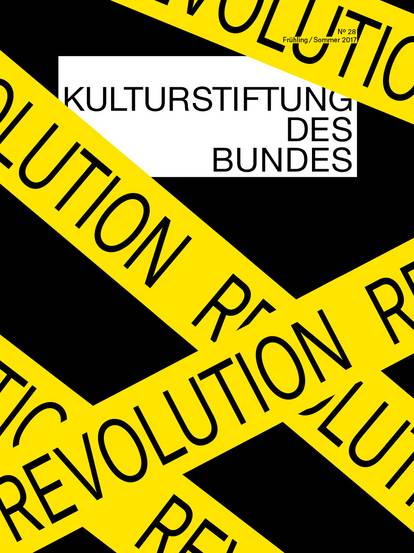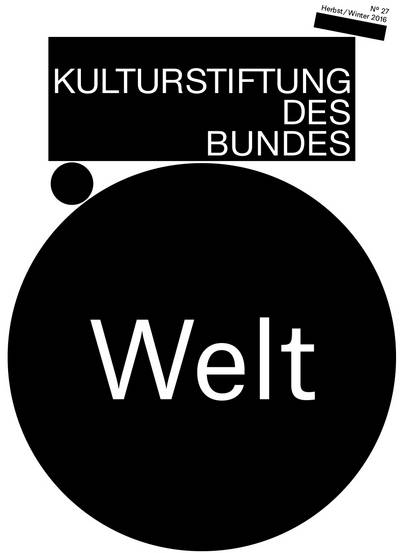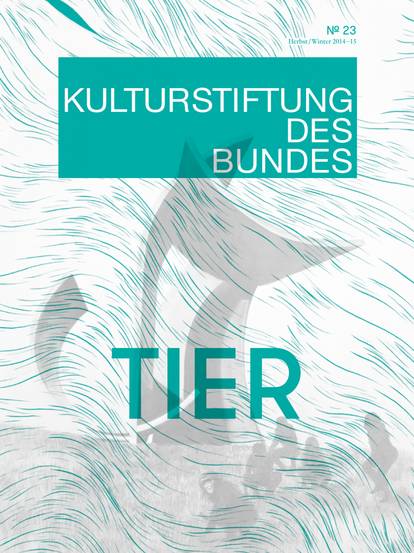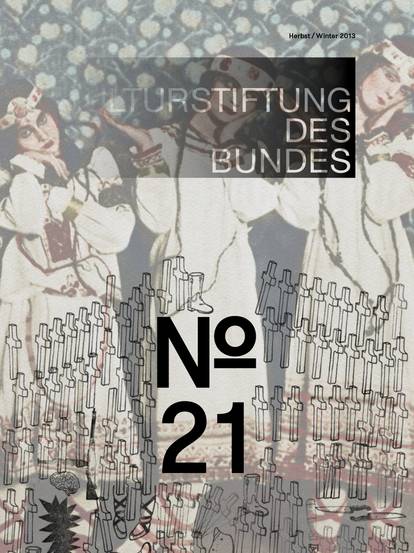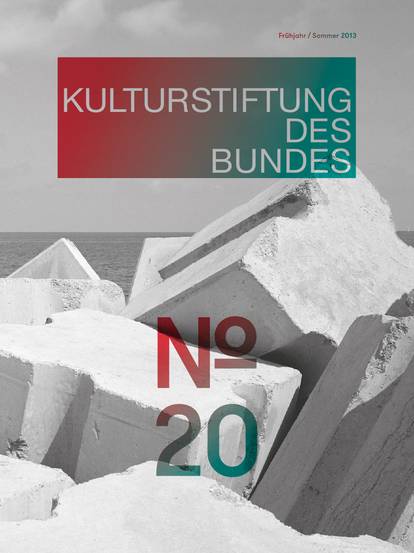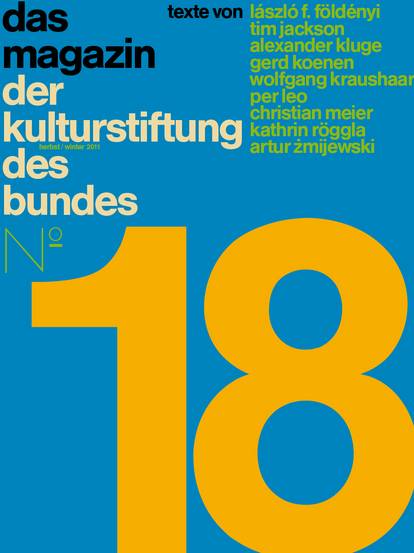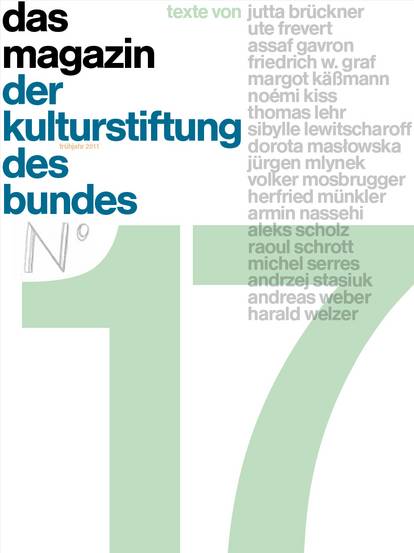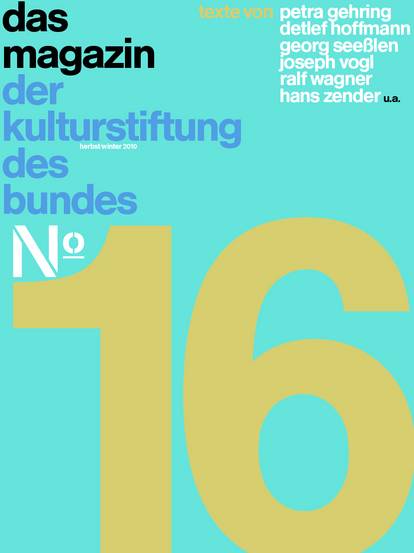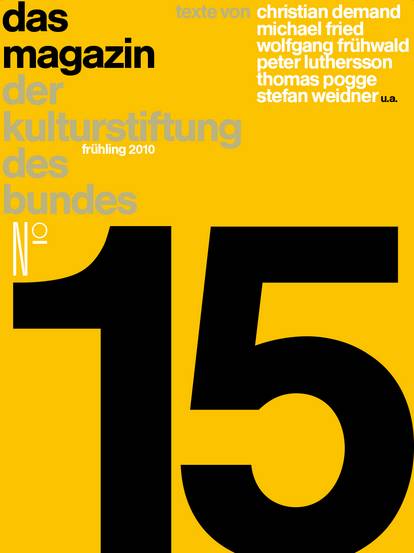“Before we even kiss the Godfather’s hand, we already owe him something.”
Cultural philosopher Thomas Macho illuminates the connection between existential, moral and economic obligation
More than one hundred years ago, a young Russian aristocrat named Sergei Pankejeff visited the offices of Sigmund Freud on Berggasse in Vienna to undergo psychoanalytic treatment. During this “talking cure”, he related a dream: he was a child, lying in bed. It was winter and it was night. Suddenly, a window opened as if by itself, and there were six or seven white wolves perched in the nut tree outside the window. Later, the young man, who had been born on 24 December 1886, associated the tree with a Christmas tree and Freud interpreted the wolves as symbols of unexpected Christmas and birthday presents. “It was already Christmas in the dream, the content of the dream revealed to him his gifts. The gifts intended for him were hanging in the tree. But instead of gifts, there were wolves.” And the wolves seemed to want devour him.
How and when can gifts mutate into predators? It would be easy to answer this question with another memory. In Virgil’s “Aeneid”, the Trojan priest Laocoon warns of a wooden horse, a gift which has already assumed animal form: “Equo ne credite, Teucri. Quidquic id est, timeo Danaos et dona ferentes.” In English this reads: “Do not trust the horse, Trojans! Whatever it may be, I fear the Danaë, even if they come bearing gifts.” (II, 48-49)
Today, descendents of the Danaë would have very good reasons for distrusting some gifts. For most gifts are, in fact, loans. They need to be reciprocated with future gifts. “Gifts always assume recompense,” according to one of the stanzas of the Havamal, a gnomic poem from the Scandinavian Poetic Edda, from which Marcel Mauss borrowed the epigraph to his famous “Essai sur le don” of 1950. Gifts require trust. They create relationships and they act as temporary bonds, as obligations which can quickly turn into threats. “I’m gonna make him an offer he can’t refuse,” says Don Vito Corleone – played by Marlon Brando – explaining how he exercises power.
He is the Godfather, the benefactor who, at the very start of the first part of the cinematic trilogy, tells the supplicant Bonasera how he can be paid back for exacting revenge. “Someday, and that day may never come, I’ll call upon you to do a service for me. But until that day – accept this justice as a gift on my daughter’s wedding day.” Gifts are brokered; they act as future prospects, confirmed at the wedding festivities for Don Vito’s daughter with a bow, a hand kiss and formal address as “Godfather.” Gifts are also transformed into debts. These transformations are accompanied by incriminations, feelings of guilt, a troubled conscience, righteousness and heated fights in the marketplace of accusations and claims. Who is guilty? Who bears responsibility and who becomes indebted – because of greed, lack of respect, vengefulness, stupidity or complacency? Who creates the debts which can evolve into crises?
In German dictionaries – from Grimm to Duden – we usually find three Schuld terms: the first refers to causality or the relationship between cause and effect: “ich bin schuld”: I have initiated and caused something. The second refers to morality: “Ich bin schuldig”: I have done something wrong or acted badly; my actions cannot be justified. The third refers to money and finances: “Ich schulde, ich bin ein Schuldner”: I have borrowed something I must give back (and may not be able to give back). Cause and effect; good and evil; giving and taking; owing and having. Aren’t these relationships too different to be analogous? It has sometimes been argued that the German language, unlike English or French, cannot differentiate between guilt / faute and debt / dette. This is why Germans are allegedly prone to moralizing economic crises and to seeing bankruptcy, for example, as inherently shameful and criminal.
The fetters of time
Admittedly, this argument is contradicted by the sheer evidence of transformative practices widely employed in Anglo-Saxon and Romanic countries. Many crimes can be redeemed with monetary payments, meaning the transformation of a moral failure into a financial obligation. And vice-versa: failure to make payments – such as tax evasion – is transformed into moral culpability. It is not for nothing that Tomas Sedlacek claims in his book “The Economy of Good and Evil” that “ultimately, the entire economy pivots on good and evil.” Economic decisions are – more often than we’d like – moral decisions. And these moral decisions are more often than we’d like based on obligations or debts which we believe from the outset we have towards others: parents, the gods, nations, the rules of familial hierarchies, religious commandments, laws and constitutions.
Before we even kiss the Godfather’s hand, we already owe him something. With respect to the first “schuld” term, we owe our very lives to a power that “caused” us to exist. “Schuld” in this sense refers – and not only in Freud’s anecdote about the wolf man – to an “original scene.” The original guilt, the “primordial debts,” is what David Graeber, in his five-thousand year history of debt, has identified as the root of economics and barter, as well as slavery; a root which is older than precious metals or minted coins. This root can be understood as a genealogical, social or existential debt; an obligation which can be negotiated according to the criteria of family or clan membership or a linguistically, religiously or politically-defined group. In his book, Graeber quotes from the Vedas: “By virtue of birth, every being is born as an obligation to the gods, to the holy one, to the fathers and to man. If someone makes a sacrifice, it is because he has owed the gods from his birth.”
The sacrifice is the gift which is given back for a previous gift - the gift of one’s own life, the fact “that we even exist at all.” Graeber could have quoted many a line from the prophetic books of Israel, the Greek tragedies or simply Anaximander’s famous saying: “Whence things have their origin / Thence also their destruction happens,/ As is the order of things; / For they execute the sentence upon one another / - the condemnation for the crime – / In conformity with the ordinance of Time.”
This sentence, by the way, is about one thousand years older than the theology of “inherited guilt” which the bishop and church father Augustine developed in his argument with the British monk Pelagius. The Greek natural philosopher had already articulated six hundred years before Christianity the fetters of time which – as the ordering phenomena of genealogy, morality and economics – define the living in terms of their “original obligation.” The unholy trinity of the German word “Schuld” – existential, moral and economic obligation – to some extent constitutes the starting point from which to renew and indulge in a discourse, in which not only various academic disciplines but also the media, religion, diverse therapies and art are at home. Of course, the complex, manifold meaning of debt and obligation is not the only thing which should be pursued here; rather – and above all – the shifts in meaning, the processes of transformation with regard to “Schuld” which can be derived from an analysis of binding social orders, or religious, constitutional or economic practices. We must ask – once again with reference to Max Weber’s study on history and Protestant ethics – how time, money and morality became inextricably intertwined. We must ask what the connection is between genealogical and economic obligation, which resulted in the loss of civil rights and to generations of slavery reaching back to ancient times. How can historical processes of transformation with regard to obligation even be described? For example, the unfolding relationship – once again proposed by Max Weber – between the experience of indentured service and Near Eastern religious salvation; or the plausibility of Nietzsche’s thesis from his Genealogy of Morals (1887), according to which the sense of obligation has its roots in “the oldest and most basic relationship between men,” namely “between the creditor and the debtor.”
But who represents the first creditor? And by what means can his demands be made and met? Substituting animal for child sacrifice, often found in exemplary form in the mythic tales of Abraham and Isaac or Agamemnon and Iphigenia, already indicates the substitution of moral for genealogical obligation. Instead of having to sacrifice one’s own offspring, there now appears the “scapegoat” or bull, which has eaten from the forbidden sacrificial grain on the altar at the Athenian “Buphonia.” Later, sacrificial animals are replaced by monetary donations – the transformation of obligations into financial debts. Other examples can be found in legal and constitutional history and certainly there are examples to be found in social and economic history.
The freedom of slaves
Nonetheless, sequential historicizing of the term “Schuld” – from the genealogical to moral and economic obligation or indebtedness – should not be interpreted as a history of progress. Neither genealogical nor moral obligation disappears, even though these may be compensated for with economic obligations such as alimony or reparations for war crimes. More dangerous still than the premature hope for progressive transformation and liberation from guilt or obligation is regressive transformation. The possibility of the regressive transformation of obligation is not only found in inheritance law, in which genealogical and economic obligations are tightly intertwined, but in debates about today’s financial crisis, as well. In the past several years, the economic debt crisis has been analyzed and commented on in moral terms. On the one hand, there have been polemics against policy-makers’ indecisiveness or rapacious bankers and financial markets; on the other hand, many have railed against corruption, tax evasion and lacking work ethic. Next on the agenda were questions about membership and identity Where are the roots of European tradition? Who should belong to us in the future? To the currency union? To the common market? Who are we related to, who isn’t part of the family? Whom can we trust and whom not? With whom do we have to demonstrate solidarity, with whom not? In brief, it’s about money first and foremost (and economic debt). Then it’s about corruption and greed (and moral obligation), and finally it’s about membership and – often enough – sheer existence (meaning genealogical, existential obligation).
The analysis of progressive and regressive processes of debt transformation implies, at the core, the tricky question of its possible discontinuation and abolishment. What could genuine emancipation look like – in the sense of the Latin verb “emancipare” – which denotes the liberation of the slave or an adult son from the mancipium; the ceremonial acquisition of property by the laying on of hands? The German words “verzeihen” (to forgive) and “verzichten” (to reject/refuse/renounce) are also closely related etymologically: “Ich zeihe dich keiner Schuldigkeit mehr, ich bezichtige dich nicht. Also verzeihe ich dir, ich verzichte auf Vorwurf und Anklageerhebung” (translator’s italics: “I no longer hold you accountable, I do not accuse you. So I forgive you; I renounce any accusation or indictment”). Every pardon is originally a renunciation, the act of foregoing retribution und that very compensation which the desire for revenge demands, e.g. the cruel justice which Bonasera seeks.
A few months before her premature death on 24 August 1943, Simone Weil wrote in her observations about the Lord’s Prayer: “We believe that we have claims on all things. And with all of these claims which we believe we possess, it is a matter of an imaginary claim from the past to the future. And we should be able to renounce these. To waive the debtors’ obligations means to renounce the entire past. It means to accept that the future is still pure and unadulterated, closely connected to the past by ties which we do not understand but entirely free of those bonds which our imagination believes it imposes on it.” I do not know whether or how this hope for the renunciation of the past in favor of a truly open and free future can be fulfilled, but I do know that we need to ask undeterred: How can we really throw off the fetters of time? How can ties be undone such that this undoing leads to absolution, or, phrased with pathos: to renewal, to rebirth, to a renaissance?

![[Translate to English:] Magazine 38](/fileadmin/_processed_/f/1/csm_Magazin38_Cover-Vorschau_921x1230_689f428dc3.jpg)
![[Translate to English:] Magazine 37](/fileadmin/_processed_/b/c/csm_Mag37_Cover-Vorschau_921x1230_b5129fdb2a.jpg)
![[Translate to English:] Magazine 36](/fileadmin/_processed_/2/a/csm_Cover_Magazin36__issuu_2f3cef97bb.jpg)

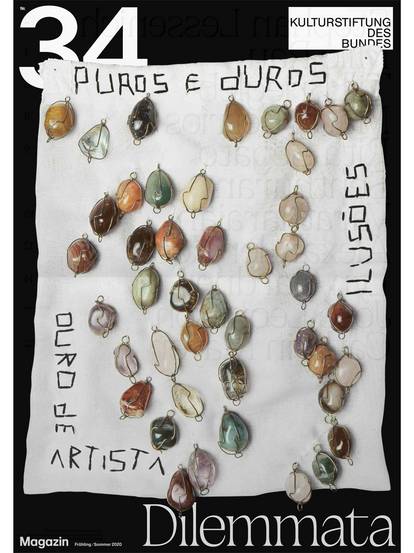


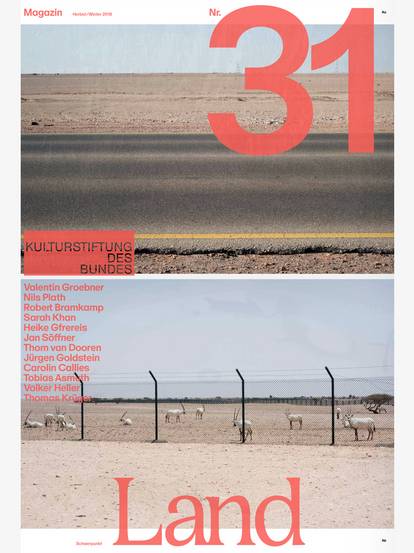
![[Translate to English:] Magazine 30](/fileadmin/_processed_/c/b/csm_magazin30_vorschau_9005f773d3.jpg)

